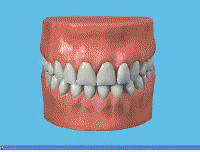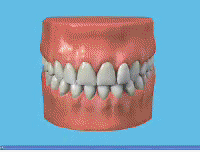Baxamed Medical Center
www.baxamed.com
Anita Baxas, M.D.
Sam Baxas, M.D.
Baxamed Switzerland
Hauptstrasse 4
CH-4102 Binningen, Switzerland
(011) 4161 422 1295
(011) 4161 422 1292
(011) 4161 422-1289
(305) 361-9249
Drs Anita and Sam Baxas offer recombinant human growth hormone therapy, live cell therapy, thymus and RNA injections, plaquex and chelation infusions to avoid bypass and amputation surgery, and other European antiaging therapies.
The Baxamed Medical Center has a “Youth Restoration Programme” in which a blood analysis determines the level of hormones such as HGH, Testosterone, Estrogen, Progesterone and DHEA, all of which decline with age. The clinic’s therapy replaces the missing hormones in the correct dosage. The clinic also offers fetal cell therapy injected intramuscularly. The patient then continues the treatment at home.
The philosophy of the Baxamed Medical Center:
“The goal of conventional medicine is to keep patients alive. Just “being alive” though doesn’t mean there is any quality to life. Frequently “being alive” means being incarcerated in an ageing body, dependent on the help of others for even the simplest activities. It means loss of strength and vigor, loss of mental capacity and loss of many body functions. It means loss of independence and dignity.
Alternative medicine and specifically the Youth Restoration Program not only keeps the patient alive, it makes the patient strong with full physical and mental capacity to live a rich and independent life. The patient doesn’t become a burden on society, he remains a contributing member of it.
It is our belief that ageing is a disease, primarily caused by the waning secretion of hormones and by the degradation of cells in every organ. Many scientific papers have been written about how the production of hormones, such as HGH, Testosterone, Estrogen, Progesterone and DHEA, decline massively with age. It is also well documented that the decline in hormones typically causes many changes in body function and structure for the ageing patient.
It is thus logical that if we replace the missing hormones and cellular building blocks to repair damaged cells of organs, we can come close to bringing back a normal, youthful structure and physiology.”
Baxamed’s Youth Restoration Program consists of a full laboratory and physical analysis of the status quo. Then all necessary hormones are replaced in the correct dosage to reach the levels of 25 to 30 year old healthy people. The organs are revitalized by 29 different fetal cell preparations that are injected intramuscularly. In addition, we recommend a hair mineral analysis to determine the nutritional status of the cells and the load of heavy metal toxins.
The treatment is initiated at the medical center and continued by the patient in the comfort of his home.
Location
Located near the banks of the Rhine river in Basel, Switzerland, the clinic is reputed to be the first in the world to implement the use of Human Growth Hormone. Baxamed Medical Center specialises in anti-ageing medicine applying various treatments such as cell-therapy, thymus shots, ozone treatments and chelation infusions. As the role of hormones in the ageing process became a matter of intensive study, hormone replacement therapy with DHEA, Melatonin, Testosterone, Estrogen has been added to the already successful treatments.
The first study on the youthful effected of HGH were published in 1990 by Dr. Rudmann and subsequently the doctors at Baxamed Medical Center studied the literature on this hormone intensively and started treating healthy older patients with this newly discovered hormone.
The results were and still are incredible. Patients report feeling energetic, loosing fat and gaining muscle strength. Some have improved hearing and disposed of their hearing aids. Others report less gray hair. HGH was able to dramatically push anti-ageing medicine into a new era of study and application. Most clinics using HGH now days apply the principle of blood result evaluation and HGH dosaging developed by the physicians at Baxamed. For more than 10 years these physicians were able to gather ample experience in the replacement of HGH and other hormones.
To start anti-ageing treatment, the patient travels to Basel, and stays in accommodation in one of the city’s hotels. At the clinic the patients personal health history and problems are discussed and a comprehensive blood test is performed to determine the hormone status and dosage requirements. Prior to the patients visit he or she will receive a kit to have a hair mineral analysis done. The results will determine if certain minerals should be taken and if there is a presence of heavy metals and should be removed. Not only the hormone replacement, but also the optimal combination of cell therapy preparations depends on a thorough examination of the patient. Once all the results are available, a personalized treatment plan is made including cell-therapy, thymus therapy and hormone replacement.
The cell combination depends on the age of the patient, the general condition and particular health considerations, and which organs require treatment to improve their function.
For patients with time constraints it is more efficient to bring all necessary laboratory results from their home town as required by Baxamed. In this case prior to the visit to the clinic lab results are taken and the questionnaire answered and faxed to Baxamed. Then the treatment can then be pre-planned and arranged before the patient visits the clinic. The discussion of the treatment and all instructions can be taken care of in one day. The patient then receives all materials, medications and instructions to take home. However, a resting phase of a few days after the cell therapy is suggested to give the body the time and freedom of stress to absorb and utilize the injected cells. We try to make this stay as unclinical as possible which is why we advise our patients to stay in hotels nearby.
To heighthen the success of the anti-ageing treatment, diet and exercise as well as nutritional supplementation are discussed.
Patients with vascular disease (heart attack, angina, peripheral clogging of the blood vessels) are successfully treated with Chelation and Plaquex Infusions. This treatment takes several weeks and the infusions are applied 3-4 times weekly. Chelation infusions remove heavy metals and free radicals and Plaquex infusions remove the fat from soft plaque. Both also have extensive anti-aging properties. Baxamed has just added new treatment rooms to its office offering a relaxing and comfortable surrounding during the 2 ½ to 3 ½ hours the infusions take.
Clilnic staff are fluent in German, English and French as well as speaking some Spanish and Italian.
Between the treatments there is plenty of free time to explore the city of Basel and its surroundings. Basel, situated on a sweeping curve of the Rhine, is not only the golden gateway to Switzerland but is also one of the oldest University cities in Europe. Today it is still world-famous for its highly developed medical and pharmaceutical technology and the watch and jewellry fair each spring. Basel lies where the three countries, Switzerland, France and Germany, meet – on the border of romantic Alsace and only a stones throw from the legendary wine country of South Baden- and this has contributed to its growth into an international metropolis.
There are a number of interesting excursions and walks in the surrounding countryside as well as cultural activities and art which Basel has to offer: the nearby hills with their ancient ruins and castles, the theaters and concert halls with their international programs, the museums and the galleries, with their ever-changing shows and exhibitions.







